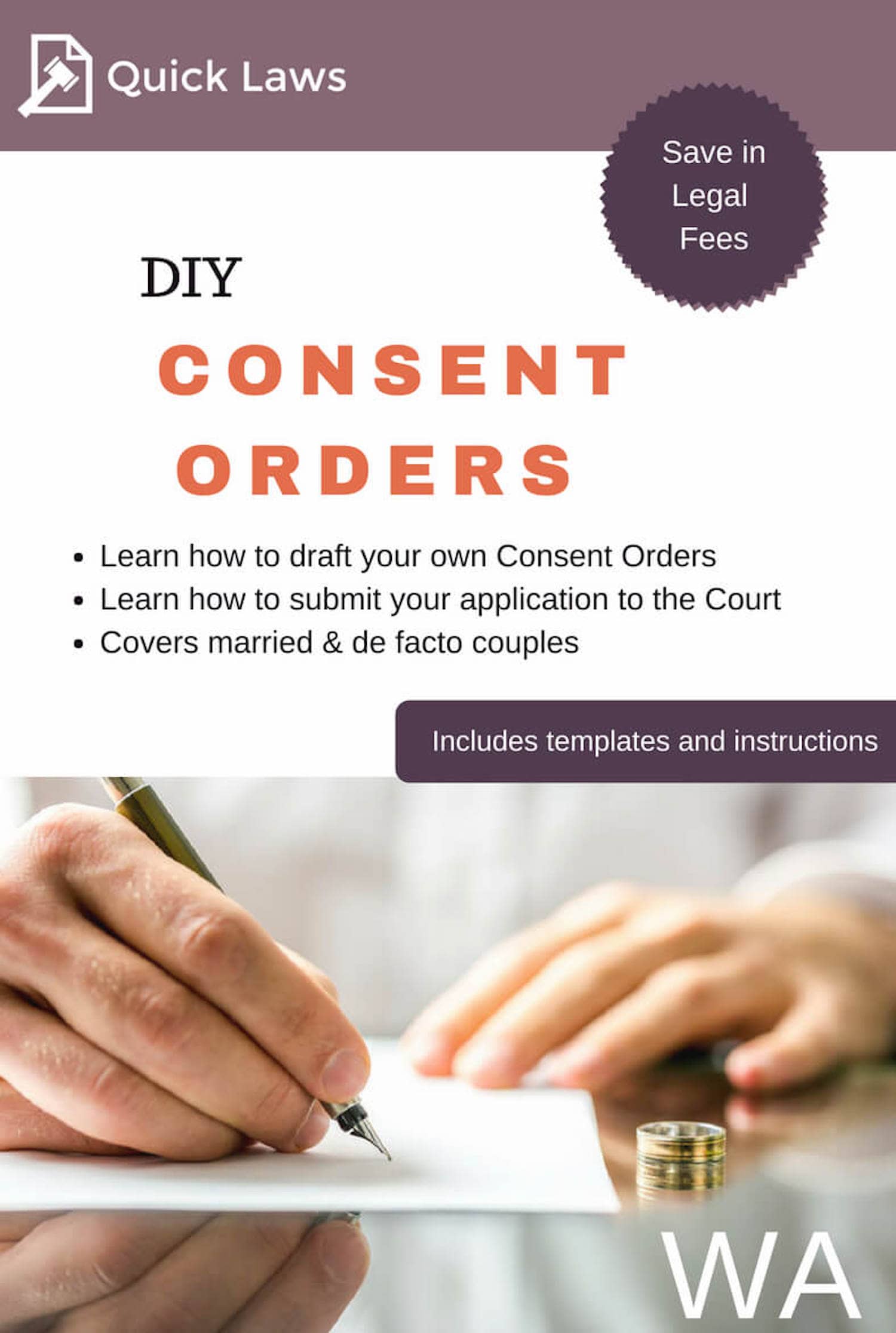When a couple decides to separate or divorce, they will need to come to an agreement about how to divide their assets and liabilities. There are two main ways to formalise these agreements: through a consent order or a binding financial agreement (BFA). While both of these legal documents can be used to achieve similar outcomes, there are some key differences between them.
Consent Orders
Consent orders are a legal document that is filed with the Family Court of Australia. They are a formal agreement between the parties involved in a divorce or separation that outlines how their property will be divided. Consent orders are a legally binding agreement and are enforceable by the courts.
To obtain consent orders, both parties will need to come to an agreement about how they will divide their assets and liabilities. This agreement will need to be put in writing and filed with the Family Court of Australia. The court will then review the agreement and, if satisfied, will issue consent orders. Once the consent orders have been issued, they become legally binding and enforceable by the court.
One of the advantages of consent orders is that they can cover a wide range of issues, including property settlement, parenting arrangements, and spousal maintenance. They are also flexible and can be amended by the parties involved if their circumstances change. However, the process of obtaining consent orders can be time-consuming and expensive, as it requires the involvement of the court.
Binding Financial Agreements
A binding financial agreement (BFA) is a private agreement between the parties involved in a divorce or separation that outlines how their property will be divided. Unlike consent orders, BFAs do not need to be filed with the court. However, they still need to comply with certain legal requirements to be enforceable.
To be valid, a BFA must be in writing, signed by both parties, and witnessed by an independent lawyer. Each party must also receive independent legal advice about the agreement and its effect on their rights before signing it.
Main Differences
One of the advantages of BFAs is that they are quicker and less expensive to obtain than consent orders. They can also be used to cover a wide range of issues, including property settlement, parenting arrangements, and spousal maintenance. However, BFAs can be more difficult to enforce than consent orders, as they are not reviewed by the court.
Another important difference between BFAs and consent orders is that BFAs can be set aside by the court in certain circumstances. For example, if one party did not receive independent legal advice before signing the agreement, or if the agreement was obtained by fraud, duress, or undue influence.
In conclusion, both consent orders and binding financial agreements are useful tools for separating couples to formalize their property settlement arrangements. While both of these legal documents can achieve similar outcomes, they have some key differences. Consent orders are a legally binding agreement that is filed with the court, while BFAs are a private agreement between the parties involved. The choice between the two will depend on the individual circumstances of the case, and it is always recommended to seek legal advice before making a decision.
Looking for a lawyer to handle your consent orders or BFA for property settlement in Australia? Look no further than our experienced team of legal professionals!
Our lawyers have a proven track record of success in negotiating and drafting property settlement documents that are fair, equitable, and legally binding. We'll work closely with you to understand your unique circumstances and priorities, and tailor our approach to meet your specific needs.
This article contains information of a general nature only and is not specific to your circumstances. This is not legal advice and should not be relied upon without independent legal or financial advice, specific to your circumstances.



